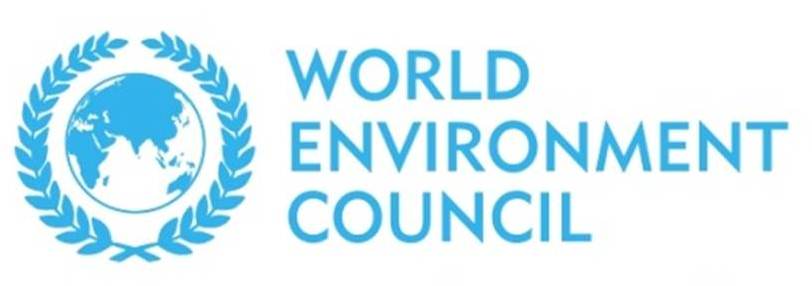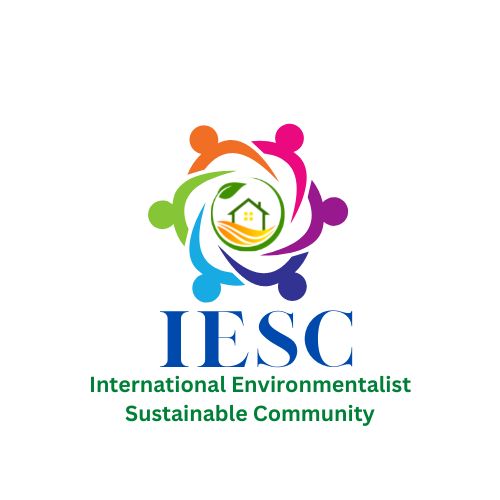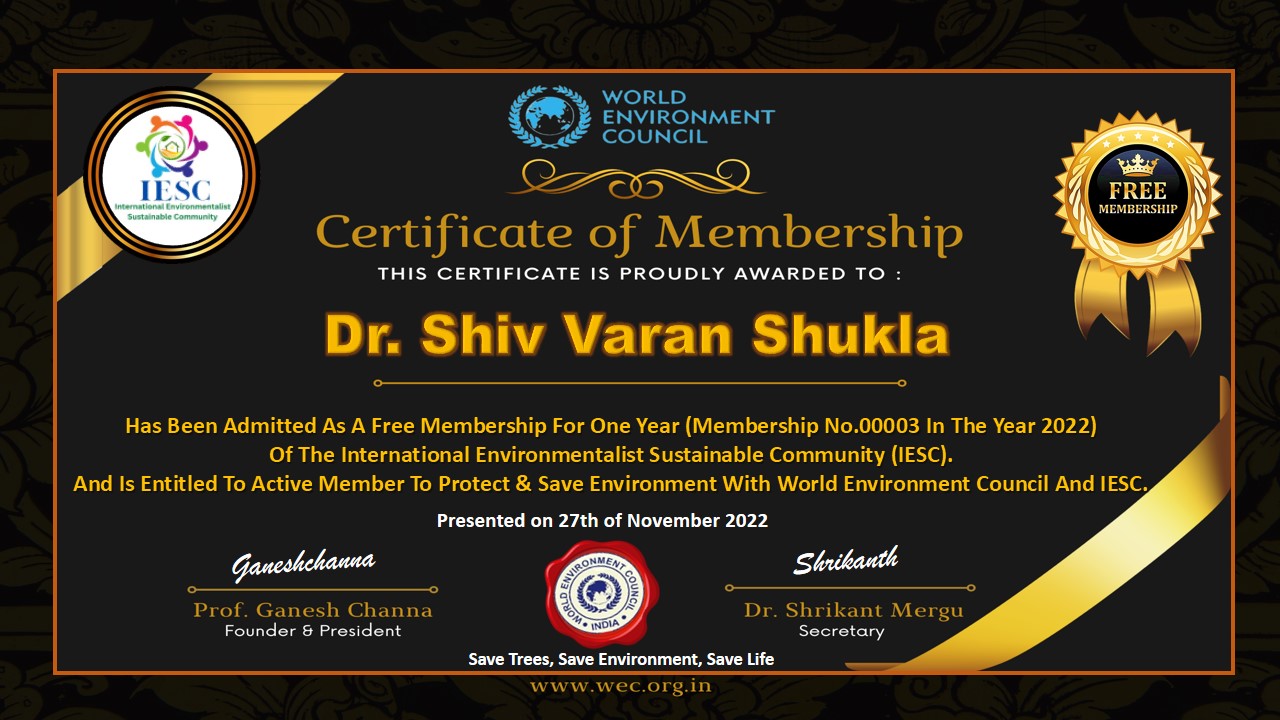About IESC
The
International Environmentalist Sustainable Community (IESC) was launched on
15th August 2022. The IESC is established and propounded by Prof. Ganesh Channa
(Founder & President of World Environment Council India)
International
Environmentalist Sustainable Community (IESC) is one of the World's First
Environmental Community for Global environmentalist community platform given to
the global people from the World Environment Council.
The
International Environmentalist Sustainable Community (IESC) is a place that
brings together international social and environmental experts from member and
non-member economies to share experiences and explore common policy issues
focusing principally on the environmental feature of sustainable development
and its linkages with economic and social policies. Issues to be addressed in
the Global Forum on Environment are shaped based on the current work of the
IESC Environment Programme, by focusing on one or two priority issues on the
global environmental agenda each year.
Together we all
work to Save Environment, Save Trees, Save Water, and Save Life by green views
of the International Environmentalist Sustainable Community (IESC)
IESC OBJECTIVES:
• To
raise and create awareness and understanding of the environment feature of
sustainable development issues worldwide;
•To circulate
information on environmental issues among policy makers, teachers, individuals,
professionals, private sector, non-profit organizations and civil society
representatives; and
• Promote
exchange of information and lessons learned among IESC and non-IESC countries
IESC STRATEGY:
The IESC provides a more holistic approach to urban and rural development rather than through a sectorial or “project-by-project” approach. Specifically, the IESC supports the following activities:
• Using
and support with local people data and tools to support integrated urban and
rural planning and implementation;
• Developing
IESC national platforms to enable public access to reliable and accurate
location-based information;
• Establishing
and enhancing urban and rural sustainability indicators in close alignment with
UN support.
• Implementing
a diagnostic process to assess cities and villages sustainability status;
• Preparing
and implementing action plans to facilitate planning for sustainable urban and
rural development;
• Providing
capacity building opportunities to improve municipal finances and city
creditworthiness, as well as to identify priorities for urban and rural
investment; and
• Organizing training, awareness, webinar, workshops and trainings at regional and national levels to share knowledge and experience among client cities.



